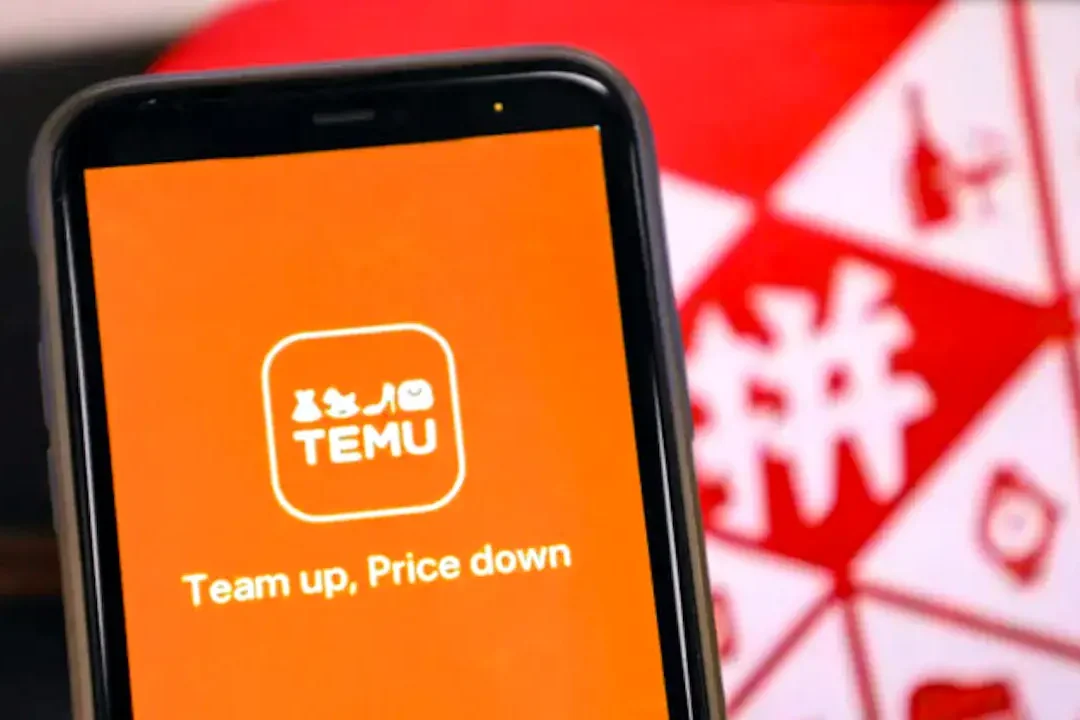The existing low-value package inspection exemption was intended for individuals for personal use items, not for commercial transactions.
WASHINGTON—To close a loophole that Chinese e-commerce platforms such as Temu and Shein can exploit to evade tariffs, the White House announced on Sept. 13 that it would exclude low-value imports subject to tariffs from qualifying for a fast-track customs process.
Known as the de minimis rule, imports under the $800 threshold can enter the United States free of duty and taxes. The U.S. Customs and Border Protection (CBP) also inspects these products minimally. The low-value package exemption was created for individuals to avoid paperwork and tariffs on items for personal use, not for commercial transactions.
CBP will propose two new rules to be finalized “in the coming months,” and a new Consumer Product Safety Commission (CPSC) rule will be finalized in the fall, according to White House senior officials. The new CPSC rule, whose public comment period on the new rule ended in February, will collect more data on de minimis shipments to improve product safety control.
Officials said the implementation of the new rule will start with textiles and apparel because they account for a significant portion of these small-value shipments. They said they decided on a “category of product approach” and would work with Congress to pass legislation to comprehensively reform the de minimis rules.
The new rules will apply to all imports subject to tariffs, with Chinese importers bearing most of the impact. China and Hong Kong accounted for 70 percent of total de minimis shipment volume on average, according to a more detailed CBP report covering 2018 through 2021.
The de minimis shipment volume exploded from about 140 million a decade ago to more than 1 billion last year. It took only nine months for the volume to reach 1 billion by the end of June this year. In 2023, CBP estimated that about 85 percent of all shipments into the United States were such de minimis entries.
Officials said the sharp volume increase was mainly driven by Chinese retailers, such as Shein and Temu, which export goods directly to U.S. consumers.
Chinese company PDD Holdings’s Temu platform went live in the United States in September 2022, just before the U.S. government’s fiscal year of 2023, in which the de minimis volume grew by 380 million packages from the previous year.
Daleep Singh, deputy national security adviser for International Economics, told reporters that because 70 percent of Chinese Textile and Apparel imports are subject to tariffs, the new rules would “drastically reduce the number of shipments entering through the de minimis exemption.”
According to CBP data, the United States processed more than 1 billion de minimis shipments at a total value of more than $50 billion during fiscal year 2023, from Oct. 1, 2022, through Sept. 30, 2023. The volume is eight times as much as in fiscal year 2015, when the threshold increased from $200 to $800.
Just days ago, lawmakers called for a de minimis reform.
In a Sept. 11 letter to President Joe Biden, signed by a majority of House Democrats, lawmakers said that “massive direct-to-consumer e-commerce platforms and the exponential growth of e-commerce traffic has resulted in a dangerous mismatch” between what the de minimis exemption was intended for and how it was used.
A report from the U.S.–China Economic and Security Review Commission last year raised concerns about Shein’s business practices, including forced labor, intellectual property rights violations, and exploitation of trade loopholes.
According to an investigative report in June 2023 from the House Select Committee on the Chinese Communist Party, “Chinese companies rely on the de minimis provision to avoid bearing responsibility for compliance with the UFLPA and other prohibitions on forced labor while relying on tens of thousands of Chinese suppliers to ship goods direct to U.S. consumers.”
The committee said Shein and another Chinese fast fashion retailer, Temu, likely represented more than 30 percent of all de minimis shipments to the United States in 2022.
Aaron Pan contributed to this report.

